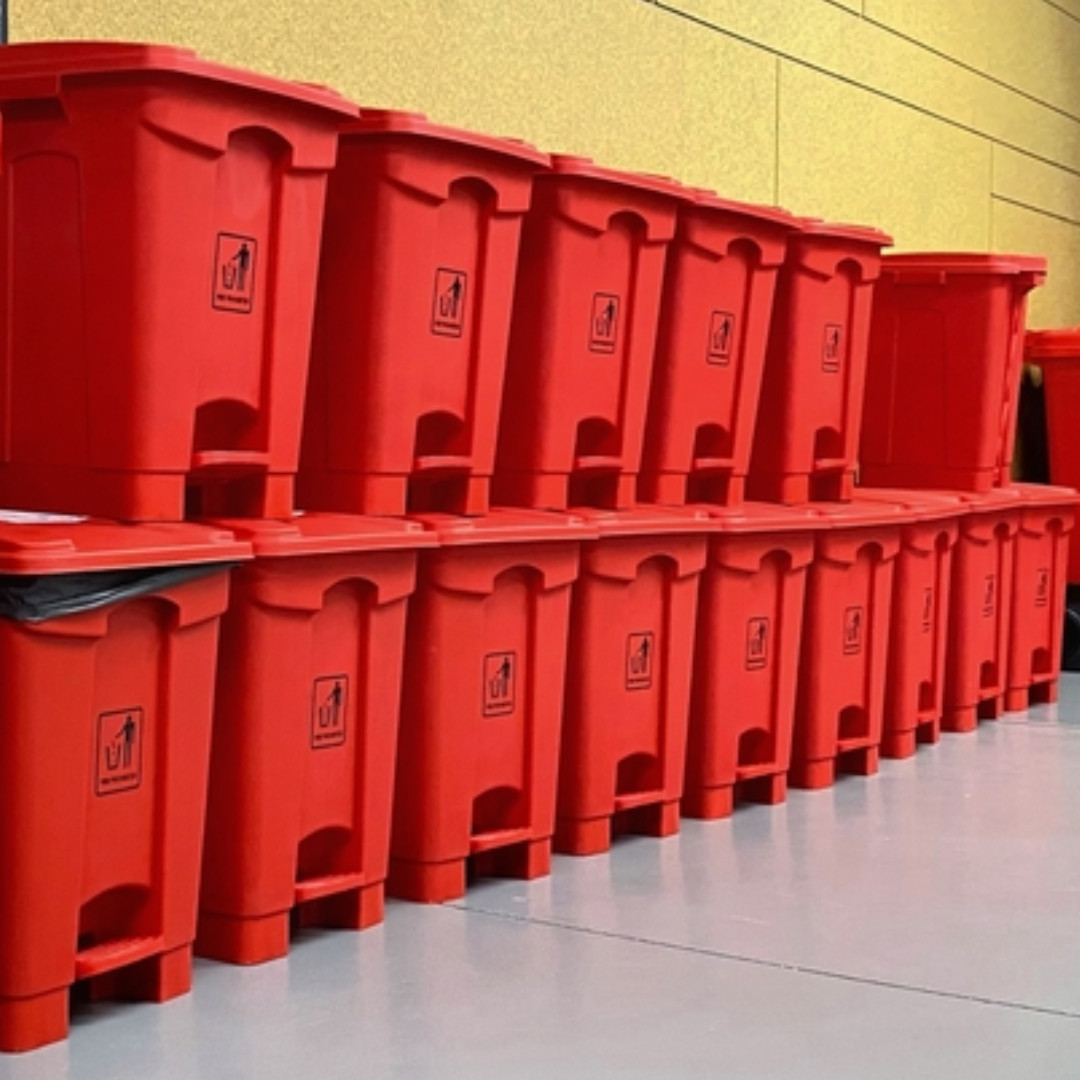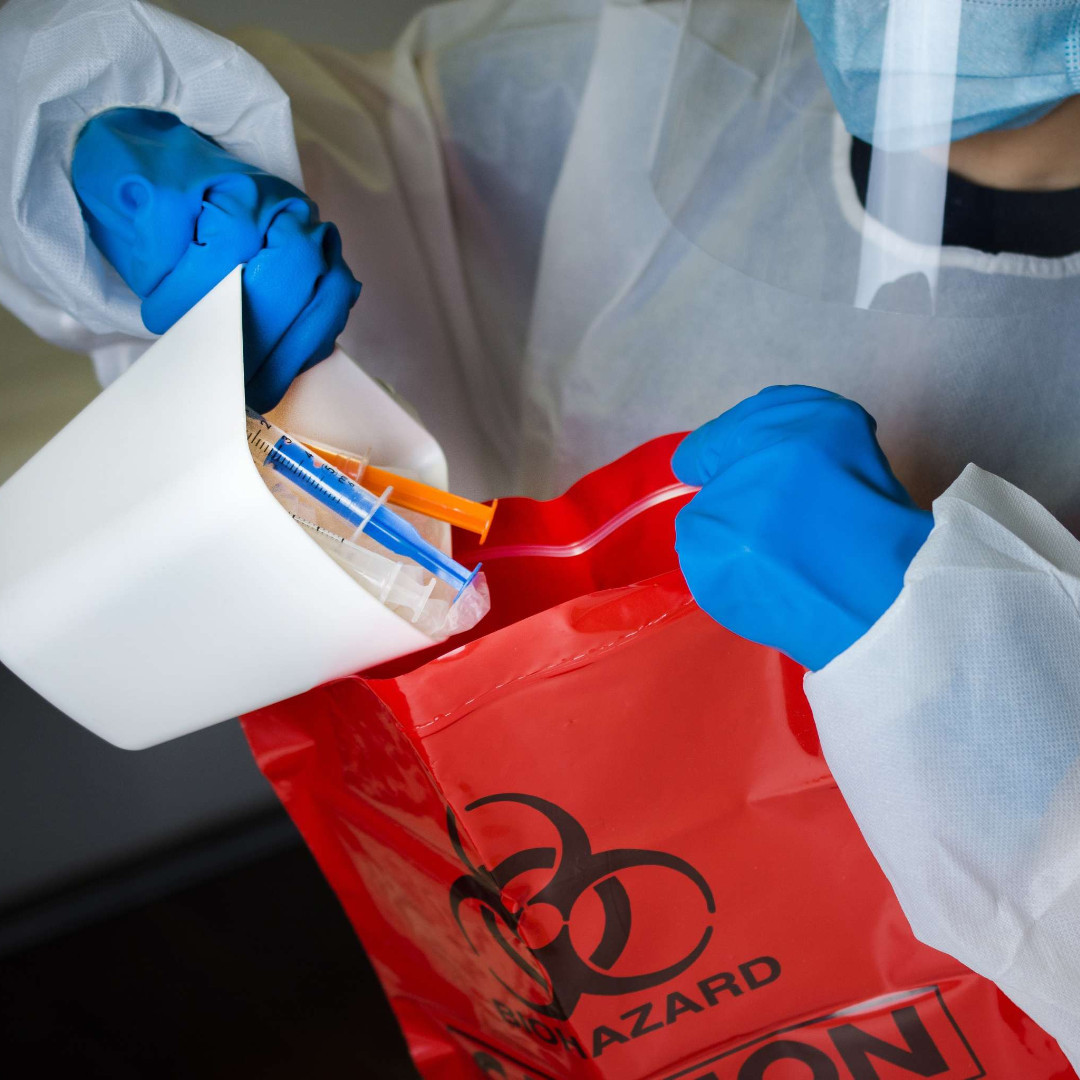On Sept. 8, with six district attorneys, California Attorney General Rob Bonta announced a settlement with Kaiser Foundation Health Plan, Inc., and Kaiser Foundation Hospitals resolving allegations that the healthcare provider unlawfully disposed of hazardous waste, medical waste, and protected health information at Kaiser facilities statewide.
As part of the settlement, Kaiser will be liable to pay up to $49 million and required to take steps to prevent future unlawful disposals. Kaiser:
- Will pay $47.250 million. That amount includes $37,513,000 in civil penalties, $4,832,000 in attorneys’ fees and costs, and $4,905,000 for environmental projects, primarily environmental prosecutor training.
- Must pay an additional $1.75 million in civil penalties if, within 5 years, Kaiser has not spent $3.5 million at its California facilities to implement measures to ensure compliance with provisions of the law alleged to have been violated.
- Must retain an independent third-party auditor — approved by the Attorney General’s Office and the district attorneys — who will: perform no less than 520 trash compactor audits at Kaiser’s California facilities to ensure regulated wastes (including protected health information) are not unlawfully disposed of; and conduct at least 40 programmatic field audits each year for five years to evaluate Kaiser’s compliance.
Kaiser’s unlawful disposals are alleged to violate California’s Hazardous Waste Control Law, Medical Waste Management Act, Confidentiality of Medical Information Act, Customer Records Law, and Unfair Competition Law. The disposals are also alleged to violate the federal Health Insurance Portability and Accountability Act of 1996, known as HIPAA.
The settlement covers six Kaiser facilities in Santa Cruz County in Santa Cruz, Scotts Valley and Watsonville.
“The illegal disposal of hazardous and medical waste puts the environment, workers, and the public at risk. It also violates numerous federal and state laws,” said Bonta. “As a healthcare provider, Kaiser should know that it has specific legal obligations to properly dispose of medical waste and safeguard patients’ medical information. I am pleased that Kaiser has been cooperative with my office and the district attorneys’ offices, and that it took immediate action to address the alleged violations.”
The settlement is the result of undercover inspections conducted by the district attorneys’ offices of dumpsters from 16 different Kaiser facilities.
During those inspections, the district attorneys’ offices reviewed the contents of unsecured dumpsters destined for disposal at publicly accessible landfills, finding hundreds of items of hazardous and medical waste (aerosols, cleansers, sanitizers, batteries, electronic wastes, syringes, medical tubing with body fluids, and pharmaceuticals) and more than 10,000 paper records containing the information of more than 7,700 patients.
The California Department of Justice subsequently expanded the investigation of Kaiser’s disposal practices further throughout the state.
In response, Kaiser immediately hired a third-party consultant and conducted more than 1,100 trash audits at its facilities to improve compliance. Kaiser also changed procedures on handling, storage, and disposal of waste.
Headquartered in Oakland, Kaiser operates more than 700 facilities statewide, making it the largest healthcare provider in California.
Kaiser provides healthcare to 8.8 million Californians, as well as members of the public who seek emergency care from Kaiser facilities.
Joining Bonta were the district attorneys of Alameda, San Bernardino, San Francisco, San Joaquin, San Mateo, and Yolo counties.
“As the largest healthcare provider in the state, Kaiser has an extraordinary responsibility to the public and to its own patients to ensure that hazardous waste, potentially infectious human waste materials, and highly sensitive patient health information are handled according to state laws and not sent to municipal landfills not equipped to handle those wastes,” said San Mateo County District Attorney Stephen Wagstaffe.
“Kaiser Permanente has a special obligation to treat its communities with the same bedside manner as its patients,” said Alameda County District Attorney Pamela Price. “Dumping medical waste and private information are wrong, which they have acknowledged. This action will hold them accountable in such a way that we hope means it doesn’t happen again.”
San Bernardino County District Attorney Jason Anderson said Deputy District Attorney Stephanie Weissman and Supervising Deputy District Attorney Doug Poston “dedicated years of their time and expertise to ensure the residents of our County are protected from the mishandling of medical waste and Kaiser policies are improved to safeguard the public.”
San Francisco District Attorney Brooke Jenkins said, “Hazardous waste, medical waste, and confidential patient information must be disposed of properly. When it is not, we will not hesitate to take action.”
San Joaquin County District Attorney Ron Freitas said, “The settlement with Kaiser places the appropriate safeguards to ensure that this never happens again.”
In 2014, the California Department of Justice filed a lawsuit against Kaiser after it delayed notifying its employees about an unencrypted USB drive that was discovered at a Santa Cruz thrift store. The USB drive contained more than 20,000 employee records.
Kaiser paid $150,000 in penalties and attorneys’ fees, and agreed to comply with California’s data breach notification law in the future, provide notification of any future breach on a rolling basis, and implement additional training regarding the sensitive nature of employee records.
In addition, Kaiser has been the subject of prior enforcement actions by local prosecutors for mismanagement of regulated wastes.
This post, Kaiser Settles for $47 Million Over Dumping Medical Waste, was first published by Times Publishing Group, Inc. on September 25, 2023.











